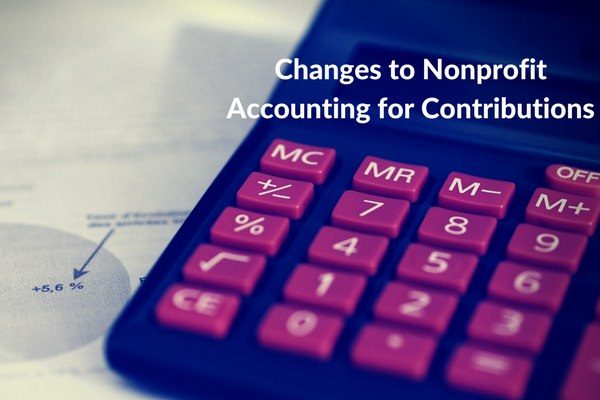Internal controls are the operating procedures a nonprofit relies on to keep things running smoothly and reduce the potential for inappropriate behavior within the organization. Essential Internal Controls Every Nonprofit Needs 1. Authority to Spend Deciding who has the authority to make and … Read More
nonprofit independent audit
In the realm of nonprofit financial accountability, undergoing an independent audit is a critical practice that ensures transparency, trust, and adherence to regulatory standards. A nonprofit independent audit is a comprehensive examination of an organization's financial records and internal controls conducted by an external auditor. This process is not just a regulatory requirement; it serves as a powerful tool for nonprofits to showcase their commitment to fiscal responsibility and stewardship of resources.
The primary objective of a nonprofit independent audit is to provide an unbiased and expert assessment of an organization's financial health. External auditors, with their specialized knowledge and independence, meticulously review financial statements, transactions, and internal processes to verify accuracy and compliance. This scrutiny offers stakeholders, including donors, board members, and the public, confidence in the nonprofit's financial integrity.
Beyond compliance, a nonprofit independent audit is an opportunity for organizations to identify areas for improvement in financial management and internal controls. Recommendations provided by auditors contribute to strengthening the overall governance structure and operational efficiency. This proactive approach not only ensures adherence to legal requirements but also enhances the organization's capacity to fulfill its mission effectively.
For donors and supporters, the results of a nonprofit independent audit serve as a testament to the organization's commitment to accountability and ethical practices. It demonstrates that the nonprofit takes seriously its responsibility to manage funds with integrity, thereby building trust and credibility. In a competitive philanthropic landscape, this trust becomes a valuable asset that can attract new supporters and solidify relationships with existing ones.
In conclusion, a nonprofit independent audit is more than a routine financial check; it's a cornerstone of responsible nonprofit management. Beyond meeting regulatory demands, it symbolizes a commitment to transparency, sound financial practices, and the highest standards of accountability. Nonprofits that embrace independent audits not only fulfill legal obligations but also pave the way for sustained trust and impact in the communities they serve.
Changes to Nonprofit Accounting for Contributions
New FASB Standards Recognizing Revenue This past August (2017), the Financial Accounting Standards Board (FASB) issued a proposed Accounting Standards Update (ASU) to address concerns raised by stakeholders regarding the recognition of revenue from contracts and grants received by nonprofit … Read More
Can Your Organization be a California Nonprofit?
Starting a nonprofit provides the community it will serve benefits and advantages, as well as, the individual(s) building the nonprofit. Typically, a 501(c)(3) nonprofit organization is formed to serve religious, charitable, educational, scientific or literary purposes. To be granted nonprofit … Read More
Tips for Writing Nonprofit Committee Charter
In addition to putting bylaws, policies & job descriptions in writing, a nonprofit committee charter is essential for detailing your current or future agenda. If your nonprofit does not currently have a board, begin by creating a committee for your charter topic. The creation of the committee … Read More
Tax Requirements for a Nonprofit Receiving Donations
Nonprofit work is incredibly rewarding, but in a sector that relies heavily on donor support, success relies heavily on the ability to demonstrate a return on investment. As your organization grows, private donors, foundations and government entities will likely request detailed accounting documents … Read More
Differences between a Public Charity and Private Foundation
Are you thinking of starting a nonprofit? Before you do, consider the Internal Revenue Service code, 501(c)(3), which governs nonprofit status. Nonprofits may be classified as either a public charity or a private foundation. The Differences between Public Charity and Private Foundation Public … Read More
Unrelated Business Income for Nonprofits
The tax codes surrounding non-profits can be difficult to understand. As a tax exempt organization, you're just exempt from paying taxes, right? Well, as with all things tax related, that depends. One such circumstance is whether or not your organization has UBI: Unrelated Business Income … Read More
Addressing Outstanding Audit Issues
Correcting the mistakes or changing policies will improve financial reporting, operational efficiency, and result in a smoother audit. Failure to address the audit findings may result in business operations disruptions and delay the issuance of the audited financial statements. Tips for Addressing … Read More
When a Nonprofit has Profit – How to use Surplus Cash
Balancing the budget for a nonprofit organization can be a difficult task especially since many are under the belief that you can't have a surplus at the end of the year. The truth is nonprofits can indeed make a profit and many do end the fiscal year with an excess in the budget. This occurs when … Read More
Nonprofit Guidelines for Keeping Accurate Fundraising Records
As nonprofit organizations recover from the rush of giving around the holiday season, many are left wondering how to appropriately keep accurate fundraising records. Along with maintaining the privacy of personal information and keeping fundraising data easy to access, organizations must also follow … Read More









